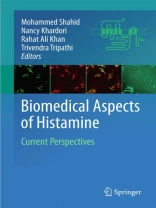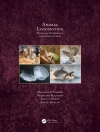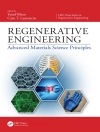Since its identification by Sir Henry H. Dale a century ago, histamine has become one of the most important multifunctional biogenic amines in the field of biomedicine. The pharmacological effects of histamine are mediated through four types of membrane histamine receptors; H1R, H2R, H3R and H4R, which are all heptahelical G-protein-coupled receptors. It has been known to play the broadest spectrum of activities in various physiological and pathological conditions including cell proliferation, differentiation, hematopoiesis, embryonic development, regeneration, wound healing, aminergic neurotransmission and numerous brain functions, secretion of pituitary hormones, regulation of gastrointestinal and circulatory functions, cardiovascular system, as well as inflammatory reactions, modulation of the immune response, endocrine function and homeostasis, and other important areas.
This book is a compendium of the current state of established and investigational literature on Histamine, its receptors and their Agonists and antagonists. It provides a comprehensive overview of histamine biology in the field of biochemistry, cell biology, molecular biology, immunology, allergy, neurobiology, pharmacology, microbiology and reproductive biology. The first section on Histamine biology and physiology leads into subsequent sections on enzymology, pharmacology, regulation of the immune system and cell proliferation and role in allergic and other diseases including acid peptic diseases, inflammatory diseases, autoimmune and cancer diseases, nervous system, reproductive functions and hematopoiesis. The compilation of chapters in the book presents the most recent advances in histamine research and bridges the basic and clinical aspects of histamine biology.
Содержание
Preface, Romesh Khardori; Section I Histamine biology and physiology : 1 An overview of histamine synthesis, regulation and metabolism, and its clinical aspects in biological system: Mohd. Shahid et al.; 2 Regulation of mammalian histamine synthesis: histidine decarboxylase: Satoshi Tanaka, Atsushi Ichikawa; Section II Enzymology in histamine biology: 3: Enzymology in histamine biogenesis: Almudena PINO-ÁNGELES et al.; Section III Pharmacology of histamine noble receptors and their ligands in drug development: 4: Biological and pharmacological aspects of histamine receptors and their ligands: Mohd. Shahid et al.; Section IV Histamine role in immune modulation & regulation: 5 The role of histamine in immunoregulation in context of T-regulatory and invariant NKT cells: Varun Dwivedi, Renukaradhya J. Gourapura; 6 Immune regulation by various facets of histamine in immunomodulation and allergic disorders: Trivendra Tripathi et al.; Section V Histamine in regulation of cell proliferation and differentiation: 7 Effects of histamine on T lymphocytes: Manzoor M. Khan; 8 Histamine aspects in acid peptic diseases and cell proliferation: Jameel Ahmad et al.; Section VI Histamine role in pathogenesis & diagnosis of allergic, inflammatory, autoimmune and cancer diseases: 9 Histamine: Role in pathogenesis of autoimmune, allergic, inflammatory and malignant diseases: Trivendra Tripathi et al.; 10 Biological characteristics of histamine receptors in airways disease management: Rajni Kant Shukla et al.; Section VII Histamine role in inflammation and allergy: 11 Mast cells as a source and target for histamine: Ewa Brzezińska-Błaszczyk; 12 Histamine H1 receptor gene expression mechanism as a novel therapeutic target of allergy: Hiroyuki Fukui, Hiroyuki Mizuguchi; Section VIII Histamine in the nervous system: 13 The neuronal histamine and it’s receptors as new therapeutic targets for food intake and obesity: Takayuki Masaki; 14 Implications of histaminergic system inbrain histamine dysfunction: Aijaz Ahmed Khan et al.; Section IX Histamine H3 receptor: A target for momentous brain research: 15 Pre-synaptic control by histamine H3-receptors of neurotransmitter release: Angélica Osorio-Espinoza et al.; Section X Histamine H4 receptor: A noble target for inflammatory and immune research: 16 Expression of histamine H4-receptor in human synovial cells and dermal tissues: Yoshiko Matsuda, Katsunori Yamaura et al.; Section XI Role of histamine in reproductive function: 17 Novel role for histamine through classical H1 and H2 receptors: regulation of leydig cell steroidogenesis and its implications for male reproductive function: Carolina Mondillo, Omar Pignataro; 18 Possible effect of histamine in physiology of female reproductive function: An updated review: Nasreen Noor et al.; Section XI Other biomedical aspects of histamine agonists, antagonists, and inverse agonists: 19 Histamine role in malaria: Adil Raza et al.; 20 Histamine-cytokine and histamine-antibody network in immune regulation: Trivendra Tripathi et al.; Index












